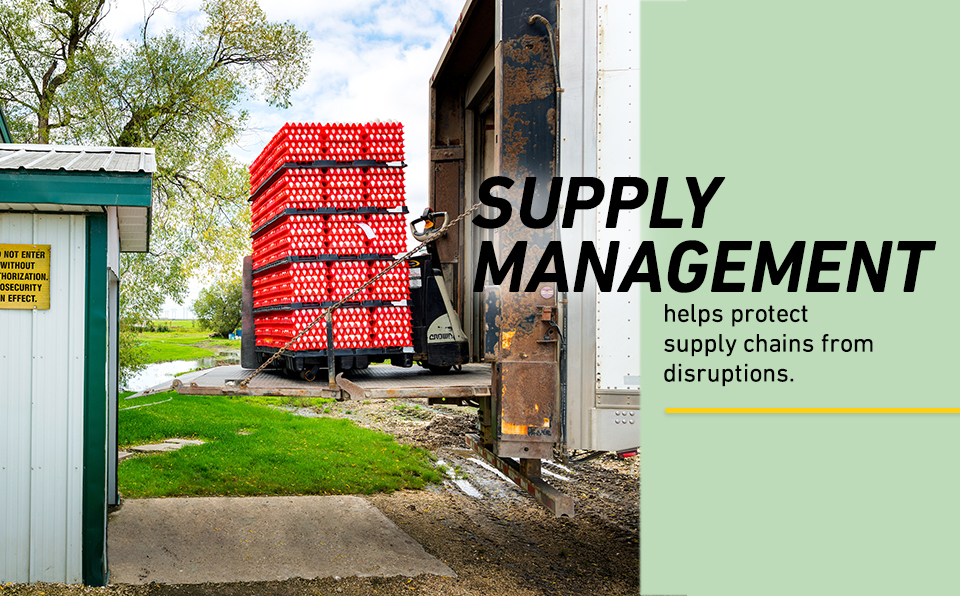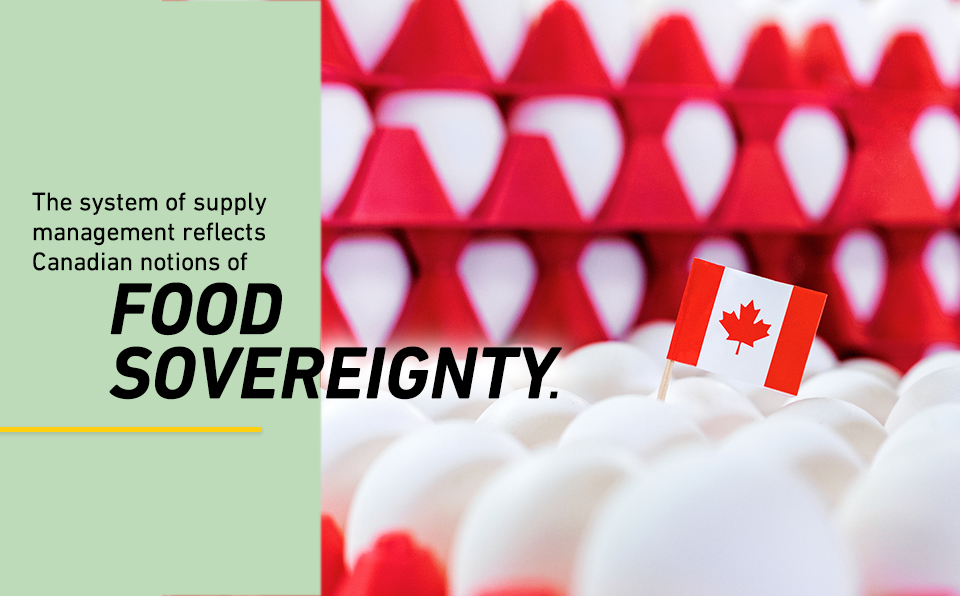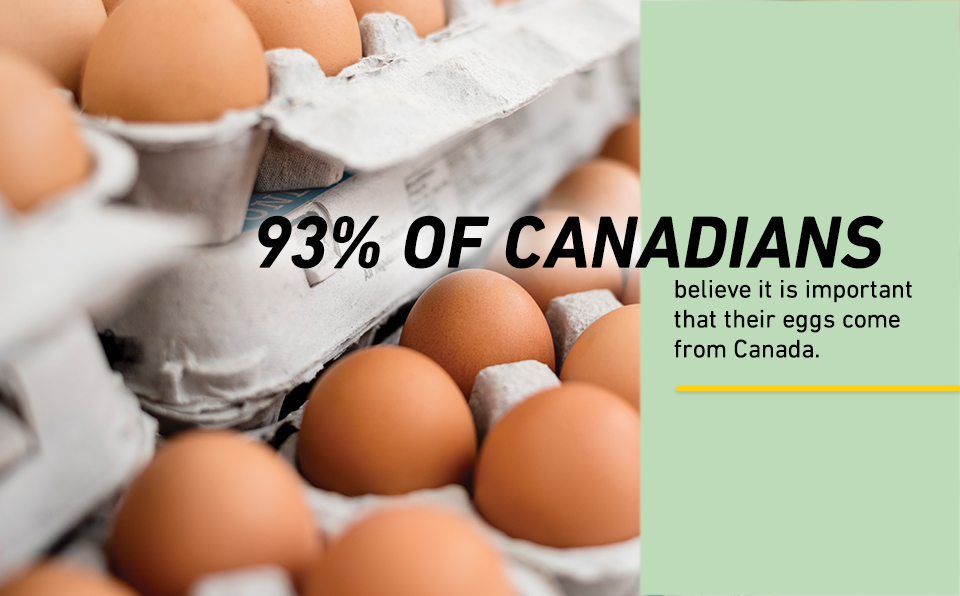
Four ways supply management strengthens Canadian agriculture
By Egg Farmers of CanadaEgg farming has been a stable and vibrant industry in Canada for decades. That success is due in large part to our innovative system of supply management, which matches Canadian demand with made-in-Canada eggs.
For Canadians, supply management means access to a consistent supply of fresh, local and high-quality eggs.
For farmers, this innovative system ensures they receive a fair and predictable return for their work. It allows farmers to invest in improvements to their farm, improving animal welfare and environmental sustainability.
Supply management also strengthens rural communities, creating stable jobs and empowering farmers to invest in their local economies. These numerous positive outcomes are what Dr. Bruce Muirhead calls the “ripple effects of supply management.”
Dr. Bruce Muirhead is the Egg Farmers of Canada Research Chair in Public Policy at the University of Waterloo. His work evaluates food policy in Canada and around the world. According to Dr. Muirhead, supply management is nothing short of “Canadian genius.” It’s a simple yet brilliant approach that requires the collaboration of the entire egg sector and has yielded powerful results since the 1970s.
Here are four ways that supply management supports a strong Canadian agriculture industry:
Supply management matches supply with demand

According to the Food and Agriculture Organization of the United Nations, “food security exists when all people, at all times, have physical and economic access to sufficient, safe and nutritious food that meets their dietary needs and food preferences for an active and healthy life.”1
Canada’s system of supply management supports food security by adding stability to food production and helping to protect the supply chain from any disruptions and shocks.
Since the start of the COVID-19 pandemic, the system of supply management has ensured that Canadians have reliable access to Canadian eggs, regardless of the instability in global markets. Amidst the uncertainty, the system worked in the background to ensure a secure supply of one of the most popular and versatile protein sources.
Supply management supports food sovereignty

The ongoing pandemic has affected societies and economies at home and around the world. These disruptions have prompted Canadians to consider supply chains in a new way, demonstrating the importance of a strong domestic supply of locally-produced goods. This is especially true when it comes to food.
Food sovereignty is the “right of peoples to healthy and culturally appropriate food produced through ecologically sound and sustainable methods.”2 The system of supply management reflects Canadian notions of food sovereignty that emphasize local food, stability for producers and consumers, and an environmentally sound agriculture sector.
In uncertain times, supply management is critical as it protects and supports food sovereignty, with over 1,200 farm families producing fresh and nutritious eggs across the country.
Supply management contributes to the Canadian economy

93% of Canadians believe it is important that their eggs, meat, dairy and produce come from Canada.3 The agricultural sector, from food production to job creation, provides a strong foundation on which our national economy can grow.
When Canadians buy locally produced eggs, they are supporting family farms in rural areas. Research has shown that supply-managed farms are important contributors to stable rural economies, contributing $1.3 billion to Canada’s GDP, while providing important tax revenues for federal and provincial governments.4
During the pandemic, supply management supported rural economies across the country. Farmers were able to keep employing those living in rural communities, while supporting local small businesses such as veterinary clinics, farming machinery dealerships and feed providers.
Supply management mobilizes both local economies and international trade

Supply management operates as a strong foundation for farm families and rural communities. While other sectors ride the uncertainties of the international market, supply-managed sectors provide a stabilizing force in Canada’s agriculture industry. The complementary relationship between export-oriented and supply-managed sectors benefits the entire Canadian economy.
For example, when global prices plunge, farmers of export-oriented goods are greatly impacted. Meanwhile, farmers of supply-managed sectors, like egg farmers, continue to receive a stable income. The consistency and predictability that this system provides allows farmers to offer steady employment, to purchase goods and services from local businesses and to support local initiatives.
To learn more about the system of supply management and the small egg’s big impact on Canada, watch the video below:
1 Food and Agriculture Organization of the United Nations
2 Wittman & Desmarais, 2012
3 Canada, Farmer Survey, November 2022
4 Kevin Grier Market Analysis and Consulting Inc., 2019